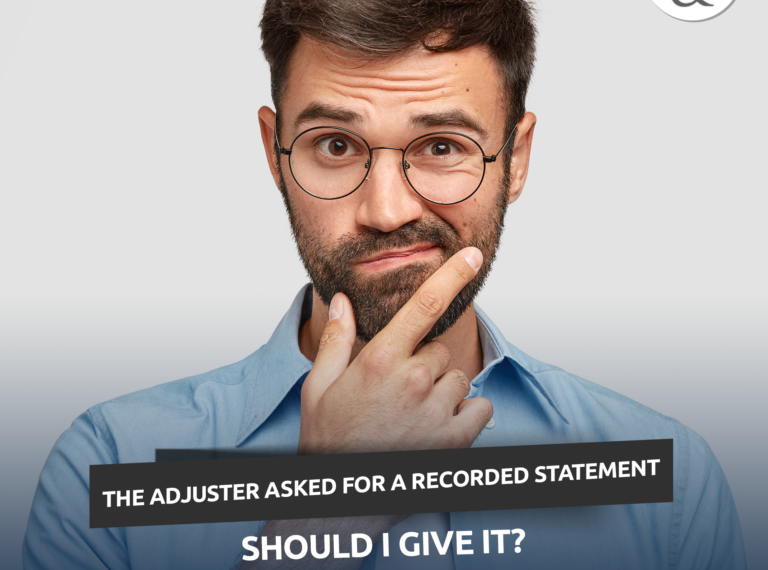[ad_1]

Unfortunately, many insurance claims adjusters can be extremely manipulative and try to convince you to agree to a settlement that does not reflect the total monetary amount you are entitled to. Although adjusters may seem friendly, they are not on your side, and it is essential to give them as little information as possible.
In general, giving a recorded statement to an insurance adjuster before consulting with an attorney is a bad idea. However, you must understand what role an adjuster plays to know how to protect your interests most effectively.
Typically, an insurance adjuster is called upon to investigate and determine the extent of an insurer’s liability in connection with a particular claim. For example, to resolve personal injury claims, the insurance adjuster will evaluate the facts surrounding the case and determine a fair amount of compensation based on the victims’ injuries, property damage, or losses. Some of their roles and duties include:
- Investigate, evaluate and resolve insurance claims.
- Review the insurance policy and determine if it covers the claim.
- Speak with the plaintiff and other witnesses to collect their testimonies.
- Negotiate a fair settlement with the plaintiffs, their attorney, or legal representatives.
- Ensuring that all injury claims are transparent and valid.
- Determine the appropriate amount of compensation.
- Meet with claimants’ employers or doctors to uncover fraudulent claims.
Within days of filing your injury claim, you will usually receive a call from a claims specialist. You are under no legal obligation to testify to another insurance company or adjuster in most cases. However, if you decide otherwise, you must remember the following:
- Ask the adjuster not to record your statements.
- Keep all statements short and to the point.
- Do not admit guilt.
- Only answer questions with which you feel safe and confident.
- Do not provide additional information that you have not been asked.
- Do not sign any documents without the approval of your attorney.
Remember that in order to not be a victim of their tricky questions or make a potentially unfavorable statement, you have the right to say no to any request for statements by an adjuster.
[ad_2]



